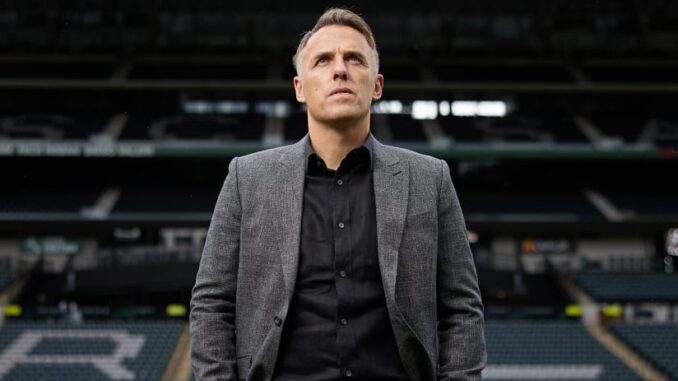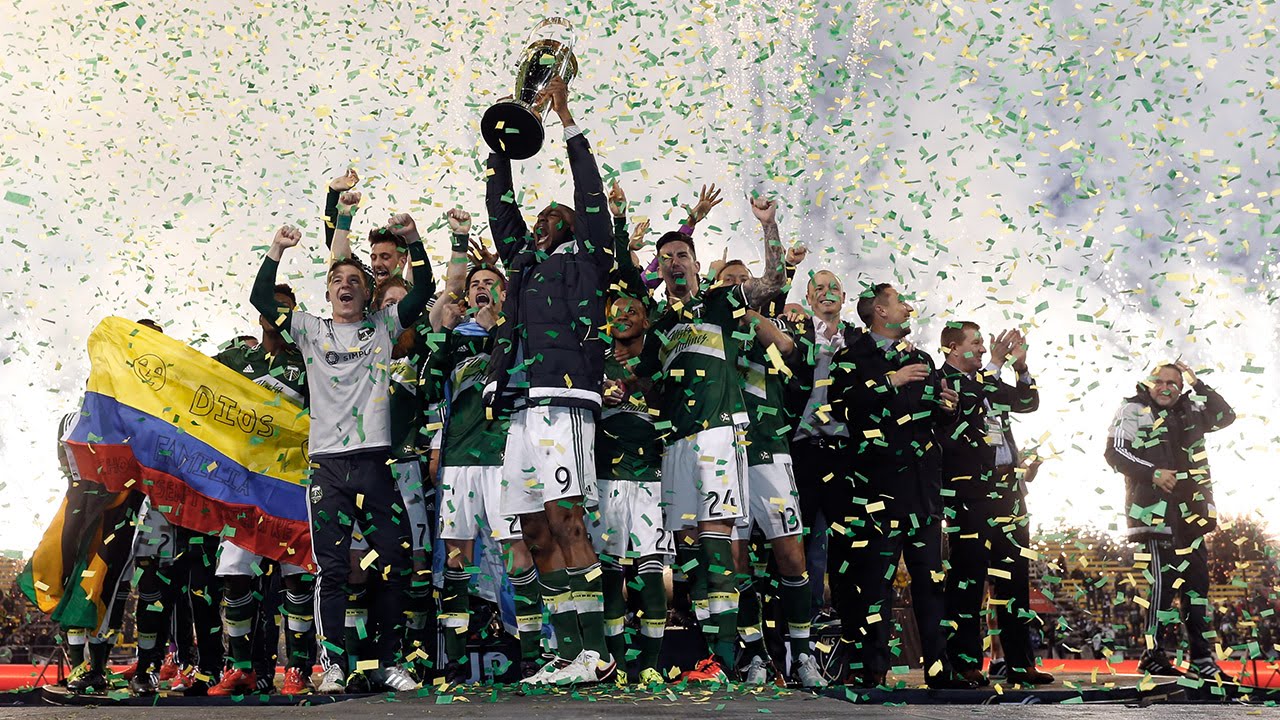
In 2015, the Portland Timbers were parading through the city, the toast of the town after having won the city’s first major sports title in nearly 40 years. What a difference a decade makes. Since winning the title, the Timbers have certainly had their ups, such as finals appearances in 2018 and 2021 and an MLS is Back bubble tournament win in 2020, but lately, the downs have far outweighed any positive energy the team has tried to create.
The latest was the hire of new head coach Phil Neville to lead the team. Neville is an MLS retread, having been fired by Miami midway through last season after he could not get the team to perform consistently on either side of the ball. Somehow, that was enough to get him hired by a Timbers team … which also had trouble performing consistently on either side of the ball.
There were indeed other, more exciting candidates for the Timbers to choose from this offseason. However, the team was either turned down by them or decided not to pursue them. In choosing Neville, the team either chose to ignore or overlook a series of social media scandals involving the coach in the mid-2010s in which he made light of domestic abuse, wondered how women could have time for things outside of the kitchen or housecleaning, To be fair to Neville, he claims to have learned and grown since posting those messages, and has apologized for them multiple times. However, the Timbers are a club coming out of their own scandal, with owner Merrit Paulson reportedly no longer involved in the day-to-day operations of the club due to a self-imposed exile stemming from covering up instances of sexual abuse and harassment perpetrated by former team President Mike Gollub, general manager Gavin Wilkinson and former Portland Thorns coach Paul Riley. When you have sponsors fleeing left and right, including your primary jersey sponsor in Alaska Airlines, walkouts and protests by fan groups, and have been rightfully criticized for trying to stonewall investigations into misbehavior perpetrated by higher-ups within the club, one would think you would want to make a hire with upside and with a squeaky-clean past.
Instead, they hired Neville, a retread who brings plenty of baggage with him in addition to a middling record as a manager who has never managed to leave a club better than he found it. For a club that desperately needs to both rebuild trust with its fanbase and try to find a way to improve on the pitch, it was a truly puzzling hire.
It’s not the only puzzling decision the Timbers have made this offseason. Following the years of scandal plaguing the team, its primary jersey sponsor, Alaska Airlines, decided not to renew its sponsorship contract when it came up for renewal. Alaska is a major and prestigious Northwest Business and was one of the longest-tenured sponsors in MLS, having appeared on the front of the team’s jerseys since their inaugural season in 2011.
Team sponsorships fulfill multiple purposes for both the team and the sponsor. First and foremost, for the team, there is obviously a steady revenue stream. However, beyond that are a range of other reasons for a sponsorship. The sponsor gets name recognition and prestige by having their logo on the front of a major sports league jersey. Both the team and the sponsor leverage it to create marketing campaigns, giveaways, and promotional tools. If the sponsor is a major local company-like Alaska-it can help give the team a bump by attracting such a prestigious company as their jersey sponsor. All of those boxes were ticked by the Alaska sponsorship, which saw the airline cover a plane in Timbers livery and also giveaways to fans for away games.
However, with the Timbers’ fortunes on and off the field plummeting, Alaska clearly felt such sponsorship was no longer a wise investment and pulled the plug.
Into the void stepped Da Bella. Many Timbers fans rightfully asked “Who?” after the jersey sponsorship was announced … which, for a smaller company, is a large part of the reason for a jersey sponsorship. However, to say DaBella is a large step down from Alaska is an understatement. Alaska is the major regional airline, with a hub at PDX that brings in revenue of nearly $10 billion annually. DaBella is a home improvement company, not well known regionally or nationally, which has annual revenues of $360 million.
While the Timbers did not disclose the terms of the deal, it’s not a stretch to imagine the team is not getting nearly as much from DaBella as it did from Alaska.
For DaBella, the prestige of being on an MLS uniform, even a scandal-tarred one, is certainly worth the price. For the Timbers, it’s a big step down from major airline to home improvement contractor that brings in less than a tenth of the annual revenue of its sponsorship predecessor.
With fans grumbling about the coaching decision and a major sponsor pulling away, perhaps a big hit straight to the pocketbook will finally be what convinces the franchise to start heading in the right direction.




